Different words, different pronunciation – I will split into two persons and try both British and American version! Learn British English in the UK – https://goo.gl/9Sv93B. Learn American English in the USA – https://goo.gl/3WFwQt
Related videos:
Speak English like an American – https://www.youtube.com/watch?v=otUnhd8ozg8
50 Common Phrases in English – https://www.youtube.com/watch?v=bj5btO2nvt8
British vs American homes – https://www.youtube.com/watch?v=a_e0rIRh-bY
⭐ INSTAGRAM – linguamarina
⭐ FACEBOOK – https://www.facebook.com/marina.mogilko
⭐ MY COMPANY – https://linguatrip.com
⭐ ASK ME A QUESTION – https://goo.gl/dQ9HDw
FILMING EQUIPMENT
? CANON G7X – http://amzn.to/2l2aSfE
? CANON 650D – http://amzn.to/2l0ihNs
? RODE MIC – http://amzn.to/2l2cwOq
? 50 MM LENS – http://amzn.to/2l0rNjr
PROMOS
$20 TO SPEND ON AIRBNB – http://bit.ly/2g0F87Q
$20 TO SPEND ON UBER – http://ubr.to/2k1B89L
source







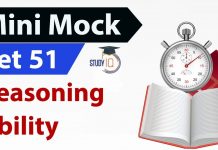





![CY_GATE_2019_PHYSICAL_SPECTROSCOPY_[ELECTRONIC_BASIC]_All IN ONE_[Short_Trick]_2018-19_PART_1ST - Videos](https://trends.edugorilla.com/wp-content/uploads/sites/8/2018/08/cy_gate_2019_physical_spectroscopy_electronic_basic_all-in-one_short_trick_2018-19_part_1st-218x150.jpg)



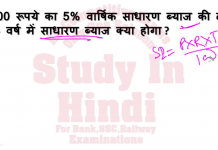
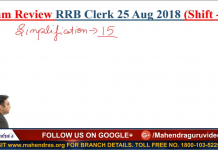
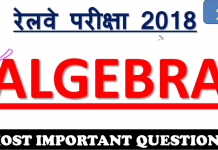
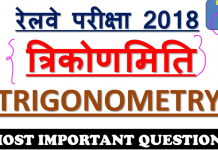
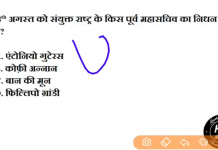
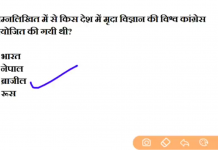
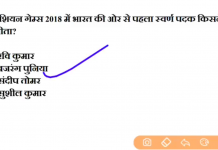





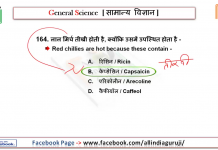
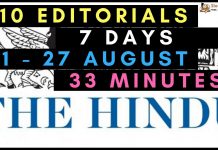

![24 August 2018 – The Indian Express Newspaper Analysis हिंदी में – [UPSC/SSC/IBPS] Current affairs - Videos](https://trends.edugorilla.com/wp-content/uploads/sites/8/2018/08/a520-218x150.png)
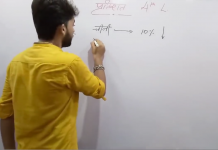



make more videos with venya
American/New Yorker here. We don't use posh (I mean, maybe ironically?), but we definitely know what it means. We view it as a particularly British way of phrasing things and there isn't quite an equivalent in American English. I guess we might say bougies or chic.
Hey ..this is really amazing video..
What that was in 5:20
огонь!
This video was amaziiiing
You are awsome as usual.
I find that it is the British who change their 'er' sound at the end of a word or a name, to a short 'a' sound and that they tend to omit the letter 't' altogether, i.e. the Brits pronounce the word water "wo-ah" with a short 'a' sound on the end, and the names Samantha, Diana, Emma, etc. with the Brit's pronunciation being "Samanth-er", Dian-er, Emm-er, etc. This is precisely where the Brits (as well as the Australians) heavily use their 'R's'…in the completely WRONG place. They pronounce the word 'written' "wri-an". It is when they put all of these chopped-up, unrecognizable words together into a sentence, and then a paragraph – is when I get completely lost!!!! All I hear is the sound of someone trying to speak with marbles in their mouth (the Brittish singer Adel, for instance). It is quite different with the Irish accent. Even though there are times when it is difficult to keep up with an Irishman speaking with a heavy slang, for the most part, the Irish generally speak with excellent, crystal clear pronunciation, unlike the English. That has just been my personal observation and experience, especially after having lived in both countries mentioned, for more than six months. In American schools, we are taught proper English pronunciation, however, this current cultural generation personally chooses to speak with a slang, thinking that it is culturally "cool", e.i. they pronounce the word 'water' "wadder", and the word 'button' "bu-an", etc., omitting the letter 't' entirely, the same as the English slang. In the case of the American pronunciation of the word 'herb' vs. "eerb", it depends on whether one comes from the Deep South vs. the Mid-West vs. the East Coast or the West Coast of the Country. Generally, in Metropolitan cities (which are considered "Melting pots") such as L.A., NYC, Chicago, S.F., etc., you will find different American English pronunciations. You can be served at the Ivy Resturant in L.A. by a server from Charleston, South Carolina who moved to Hollywood to pursue an acting career. You will most definitely here them say "eerb" instead of 'herb'. Just as I said previously, it is now considered "cool" to speak with slang, in order to feel culturally relevant in both the U.S.A. and in the U.K, and I'm assuming Austrailia as well. It's sad but true. So in this case, it is a bit unfair to compare proper English pronunciation with American-slang, just as it would be unfair to compare proper American pronunciation with Brittish-slang. You would need to compare apples to apples, and oranges to oranges. Not apples to oranges, and vice-versa. Just something to consider from viewing with a different lens.
Это было офигенное видео!! Очень крутая идея! Делай еще такие не зависимо от лайков, плиииз))
? Henry woke up and heard someone say, "Hurry get on the lift!" Sadly, Henry didn't know a "lift" is an elevator and was eaten by the pack of zombies running around the apartment building. ????
American accents suits you more indeed, linguamarina??? British accents? Hmm……. My German English accents would sound better than that, Ja…. ???
Haha..British vs American
Hi Marina, Can u please create a video which is related to DV lottery interview?
I wonder if the DV selected cadidates have more chances to pass interview test or not? Truely, I've been selected by the DV lottery 2018 and now the interview test is nearly come ,so it makes me so worried about the interview. I dont know what should I prepare myself for the interview. I think u will have some tips which can help me.
Best regard from me???
Why do you often talk ?
Marina in British lady is much graceful than us …
I've been living in england for 2.5 years yet I still find difficult to understand scouse accent. They're the worst > . < my fav British accent has to be London accent as it can be readily understood and it's very "posh". Funny fact about scousers. They say "Ta" which is an informal way of saying "Thank you". " Ta mate! "
I love your videos and this one is once again very interesting as well as funny to me as someone who has been interested in the English language for over a decade now.
It has to be said, though, that you cannot generalize pronunciation like this. The example with the way "a" is pronounced is not applicable to all words. For example: the "a" in car is the same in both languages, and there are a lot more words that use the same "a" and even if they are different it's not always because of the AE/BE thing but because English pronunciation does not always make sense – see this example: https://en.wikipedia.org/wiki/Ghoti 🙂
You got the pronunciation of "leisure" wrong by the way (at least in AE), it is [ˈlē-zhər], where the "ei" part is is pronounced like in "receiver": https://www.merriam-webster.com/dictionary/leisure
I live in the US and have Canadian parents and British Grandparents, so I have heard most English slang and non US English sounds normal to me too. I learned as a kid that Posh stands for “Port out, Starboard home,” it’s a word based on where the British High Class would stay on Ocean Liner voyages on the first class decks. I grew up with Serviettes, Davenports, and Chesterfields instead of The US equivalents, so kids at school would think I had weird words for things.
I'm American and I've heard of posh. I mostly use it when I am trying to either sound fancy or make fun of someone who thinks they are posh.
you're the one and only heard from posh
I learned the word “posh” from the Spice Girls ages ago. We don’t really use it in America.
Burn -you said in Br.English -birth [th]?
It was very funny video!
Thumps up..tfs.
US had never heard posh in my life … loving the video
Beautiful!!!
From Maine, US. I've always said, "adult" the way your British side did. Also, nobody in Maine pronounces "aunt" as "ant".
I want someone who learns English to communicate with me on Facebook to get in touch and to have conversations that will help us learn quickly and easily
Scouse, Bristolian, Cockney, North country, Cornish, Geordie, Manc…..Just a few accents that would sound wildly different from your "yank" version of our UK vocabs ….You are bloody great at learning the Language like but..purlease don't try to put one accent on being "english"…..we arn't all tea drinking American stereotypical brits who loose our shit against an alien invasion (independance day) and speak with plums in …
Ire mithes…wot wot.
Hello Marina, you're awesome like past videos and it's please for me. It sounds good if you tell me how can I expand my vocabulary+dictation for TOEFL. best wishes. I can teach you some Persion would you like to learn?